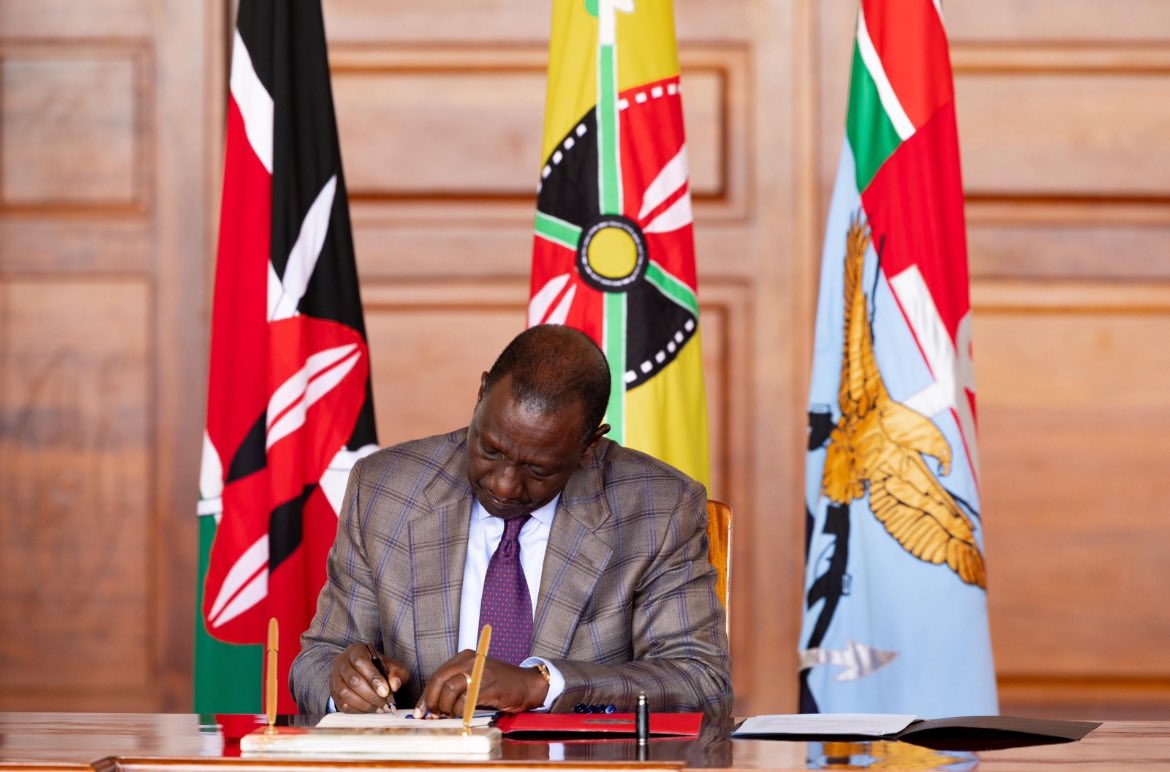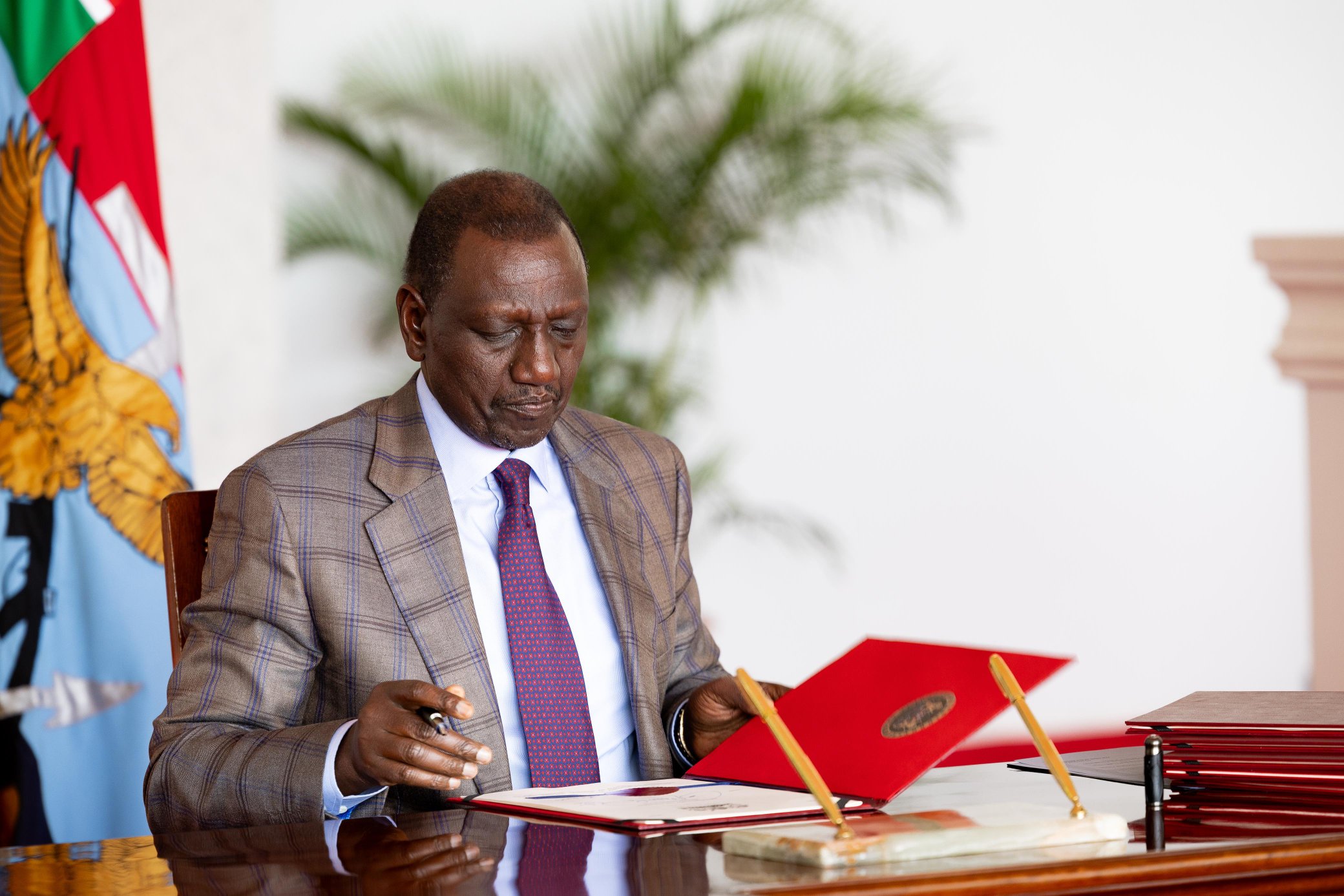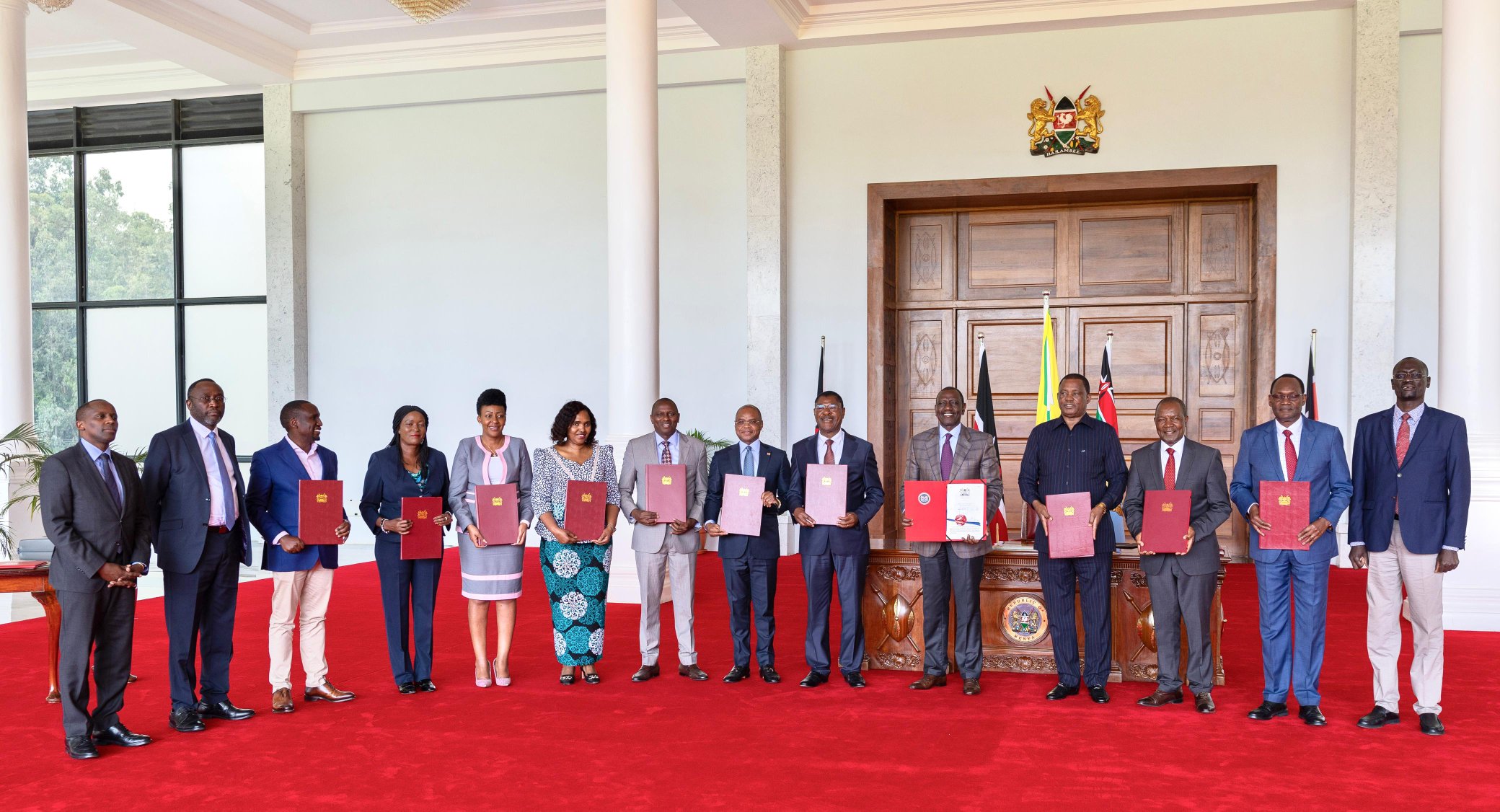Ruto assents to Appropriations Bill to cushion govt after rejecting Finance Bill, 2024

"Articles 221 and 222 of the Constitution require that the Appropriations Bill be assented to by June 30 every year to guarantee the continuity of government operations," Ruto explained.
President William Ruto, on Friday, June 28, signed the Appropriations Bill, 2024, as required by law before every June 30, to ensure funding for critical services.
However, the Appropriations Bill 2024 will still be subject to an adjusted supplementary budget after he rejected the Finance Bill 2024 and ordered it be withdrawn from Parliament.
More To Read
- From detention to global recognition: Rose Njeri named in 2025 Time100 Next list
- President Ruto defends teachers’ State House meeting amid backlash
- How protests over Finance Bill hurt Nairobi’s daily revenue collections
- High Court halts construction of church at State House pending constitutional review
- President Ruto distributes business equipment to Nairobi youth groups
- Ruto revives ‘Hustler’ wave with youth empowerment drive ahead of 2027 polls
“Articles 221 and 222 of the Constitution require that the Appropriations Bill be assented to by the 30th of June every year to guarantee the continuity of government operations, especially in providing critical services,” Ruto stated in a statement released by State House Spokesperson Hussein Mohamed.
“I have therefore assented to the Appropriations Bill 2024 and instructed the National Treasury to immediately prepare supplementary estimates to reduce expenditure by the amount of revenue that was expected to be generated by the rejected Finance Bill 2024,” he added.
Ruto wants expenditures to be reduced by Sh346 billion, equally spread among the national government, including the executive, the legislature, the judiciary, and constitutional commissions.
 President William Ruto signs the Appropriations Bill, 2024, at State House, Nairobi, on Friday, June 28, 2024. He also referred the County Allocation and Revenue Bill back to Parliament for budget reduction. (Photo: PCS)
President William Ruto signs the Appropriations Bill, 2024, at State House, Nairobi, on Friday, June 28, 2024. He also referred the County Allocation and Revenue Bill back to Parliament for budget reduction. (Photo: PCS)
He also referred the County Allocation and Revenue Bill back to Parliament for reduction as it needs to be adjusted following the rejection of the Finance Bill, 2024.
Moreover, he also ordered the National Treasury to immediately submit to Parliament amendments to the Division of Revenue Act 2024 to reflect the reduced new revenues.
“I have also instructed the National Treasury to direct all accounting officers to ensure that only critical and essential services are funded, using no more than 15% of the budget, until the supplementary budget is approved,” Ruto stated, with the country angling towards using the revenue collection models enshrined in the Financial Act 2023.
Treasury, in response, further ordered all accounting officers to ensure strict adherence to Ruto’s orders and various laws guiding expenditure, including the Public Finance Management Act, 2012, and the Public Procurement and Asset Disposal Act, 2015.
Accounting officers will also ensure their juniors are brought up to speed with the new changes as Ruto adheres to his promise to cut down wastage, following nationwide protests against the now-withdrawn punitive Finance Bill, 2024.
“On Wednesday, June 26, 2024, I declined to sign the Finance Bill 2024, consequently sending a memorandum to the National Assembly rejecting all clauses of the bill,” Ruto reminded the nation on Friday.
While rejecting the bill, he stated that he had attempted to solve all financial woes, including the high debt levels, development demands, wage bill, and county funds, but Kenyans still opposed the bill, which they argued advocated for outrageous tax measures, including widening the tax brackets.
 President William Ruto (5th right) poses for a photo with Treasury CS Njuguna Ndung'u (3rd right), Attorney General Justin Muturi (4th right), Speakers Moses Wetangula (6th right) and Amason Kingi (centre), and Majority Leaders in the National Assembly and Senate, Kimani Ichung'wah (centre) and Aaaron Cheruiyot (4th left), respectively, among other leaders a State House, Nairobi, after sigining the Appropriations Bill, 2024, on Friday, June 28, 2024. (Photo: PCS)
President William Ruto (5th right) poses for a photo with Treasury CS Njuguna Ndung'u (3rd right), Attorney General Justin Muturi (4th right), Speakers Moses Wetangula (6th right) and Amason Kingi (centre), and Majority Leaders in the National Assembly and Senate, Kimani Ichung'wah (centre) and Aaaron Cheruiyot (4th left), respectively, among other leaders a State House, Nairobi, after sigining the Appropriations Bill, 2024, on Friday, June 28, 2024. (Photo: PCS)President William Ruto (5th right) poses for a photo with Treasury CS Njuguna Ndung'u (3rd right), Attorney General Justin Muturi (4th right), Speakers Moses Wetangula (6th right) and Amason Kingi (centre), and Majority leaders in the National Assembly and Senate, Kimani Ichung'wah (centre) and Aaaron Cheruiyot (4th left) respectively among other leaders a State House, Nairobi after sigining the Appropriations Bill, 2024, on Friday, June 28, 2024.
Top Stories Today












































